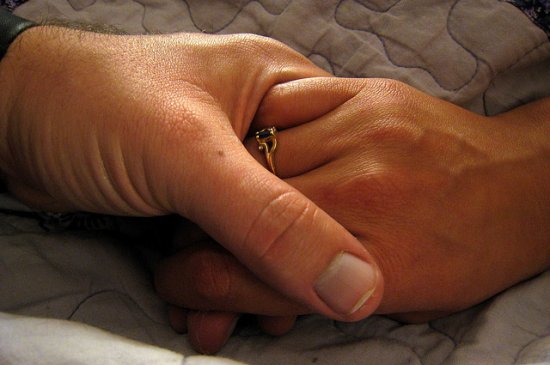
For married couples that are struggling with debt, bankruptcy may be a viable option but if you both work, it may be a challenge to qualify for Chapter 7. While Chapter 13 is a better option if you need time to catch up on back mortgage or car payments to block a foreclosure or repossession, Chapter 7 bankruptcy offers faster and more complete debt relief. Married consumers can opt to file bankruptcy jointly, or one spouse can file individually without the other. Today we'll take a look at when you might want to file individually instead and how your spouse's income can impact your ability to access Chapter 7 debt relief.
When you may want to file individual, not joint, bankruptcy
If both your names are on all your debts, filing joint bankruptcy makes sense. For instance, if your mortgage is in both your names and your payments are delinquent, filing together may be a wise choice. If you have joint credit card accounts, car loans, and other debts, filing together will protect you both. But if your debts are mostly in the hands of one of you, particularly those debts that are behind and you're struggling to pay, an individual filing makes sense. Sole bankruptcy, particularly a Chapter 7, can wipe out your individual credit cards, medical bills and many other unsecured debts while shielding your spouse and their credit rating from the filing.
How the bankruptcy system treats spousal income in Chapter 7
In order to qualify for a Chapter 7, you have to pass a Means Test. This test considers all of the income that comes into the household and the expenses. So long as you and your spouse share a household, both incomes will be considered. If, however, you do not live together (perhaps because you're legally separated) then the court may consider only your income and expenses. If your spouse earns significant income or if your income is nearly high enough to cause you problems with the Means Test, spousal income can bar you from getting the more complete relief offered by a Chapter 7.
However, the court does allow you to deduct back out some portions of your spouse's income. The Means Test instructions say you can reduce your spouse's income by the following:
- Withholding taxes – This includes state and federal withholding as well as Social Security and Medicare tax withholding.
- Student loan payments – If you spouse is still paying student loans, this amount can also be backed out of their income.
- Support obligations – This includes child support or alimony payments your spouse is required to pay from a prior court case.
- Debts of the spouse – Certain debts of the spouse that are only in their name and from which only they benefit. For instance, credit card payments for cards in your spouse's name that are used for them personally and not to pay household costs could be excluded. Car loan payments for a vehicle that they drive and that you don't use for transportation needs may also be excluded. Debts and expenses that are in their name only but that benefit the household cannot be excluded – this would include utility payments for your joint home, furniture loans for goods in your shared house, etc.
The bottom line is that you shouldn't assume that you won't be eligible for a Chapter 7 bankruptcy simply because of your spouse's income. It's worth the effort to go through the Means Test process and see how it works out. Means Test calculations can be complex to assess on your own. We recommend you consult with a reputable bankruptcy attorney to determine which chapter of bankruptcy will best benefit you and your spouse.
Please read the original post on our affiliate site, BillsBills.com
